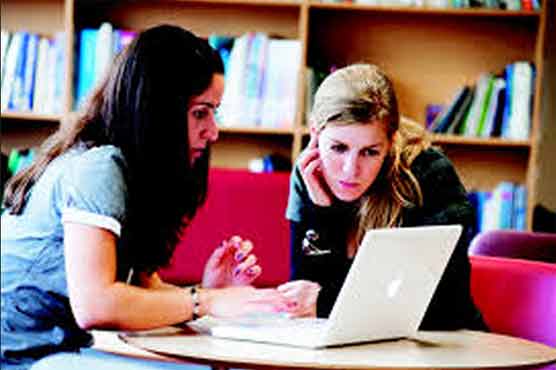�Let's make UK best country with technology�

The chancellor believes Britain should give young people the skills to lead the digital world
LONDON (Web Desk) - The computer is a bicycle for our minds." That s what Steve Jobs said back in 1990, at the dawn of the internet revolution that transformed economies and societies across the globe.
When I was a teenager, I was lucky enough to have been given the opportunity to learn to code Basic – the equivalent of learning to ride a bike in the digital age, so to speak.
At the time, tens of thousands of young people across the UK were also learning to code on BBC Microcomputers, and exploring the potential of writing software and interacting with technology.
While my coding skills didn t make it beyond Basic, an entire generation of gifted British software engineers and world-beating technology companies was born.
This golden era of coding ended in the last decade, as school curriculums focused on simply teaching young people how to use software such as Word and PowerPoint, not how to write code and design computer programs. In other words, students became passive consumers, not creative producers.
At a time when technology was becoming ever more important for the economy, when we were not only viewing what s available online but editing and uploading too, I think this was a mistake. It fundamentally misunderstood tech – an industry that has broken down the traditional barriers between the consumer and the producer.
This means that today an ever increasing number of people are producing software, creating new ideas, new products, even new industries.
The proliferation of apps is just one example, fuelled as it is by thousands of small developers, rather than the few goliaths who made up the market for software just a decade ago. The digital economy is booming, producing the kind of jobs we need to win in the global race.
That s why, this week, I m going to one of the world s largest technology festivals, Campus Party, at London s O2, where I will debate with Wikipedia co-founder Jimmy Wales the role for government alongside entrepreneurs in making sure this country is the best place in the world to learn digital skills, engage with the digital economy and set up the next Wikipedia.
Government doesn t create entrepreneurs. But my job as chancellor is to make sure we create the right environment for those entrepreneurs to succeed. First, we re putting in place the right digital infrastructure. We are already committed to extending superfast broadband to 95% of homes and businesses – and this year we announced we want to reach 99%.
Second, we are opening up the government data that had previously been locked away in Whitehall. This data not only makes government more accountable and transparent, it s also being used by thousands of small businesses and charities across the UK to produce innovative new apps and services.
But most important of all, we are going to give our young people the very best tech start in life. As this newspaper has so tirelessly argued, it is vital for our economy that British students are once more taught how to program code and master the tools of the digital age.
From September 2014, the new national curriculum will require that students aged between five and 16 are given the skills they need to build apps and write computer programs.
The curriculum will cover theoretical ideas and practical problems, software and hardware systems – and it certainly won t be an easy ride. Students will be given a thorough understanding of logic and set theory, and they ll need to master difficult concepts such as algorithms, programming languages and the architecture of the internet.
There will be tough new requirements for computer science teachers, too, who themselves should be able to program code.
We ve launched new bursaries of up to £9,000 to computer science graduates who become teachers. We have teamed up with the British Computer Society to offer scholarships worth £20,000 each to reward truly exceptional graduates who decide to become computer science teachers.
And we re retaining existing teachers. Our education minister, Liz Truss, recently announced £2m of funding to build a network of 400 "master teachers" who will help thousands of others acquire the digital-making skills that they in turn can pass on to their students.


